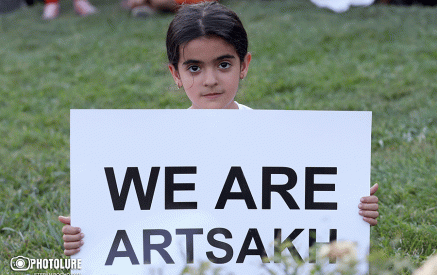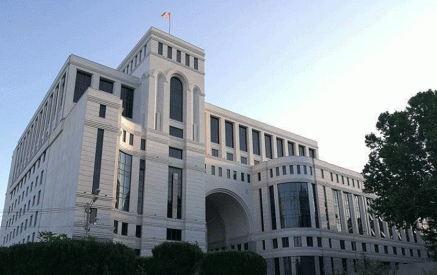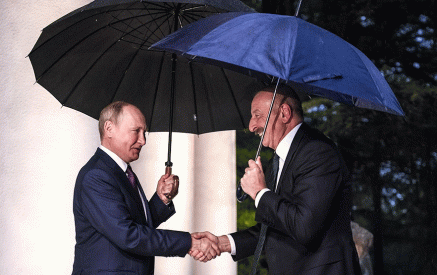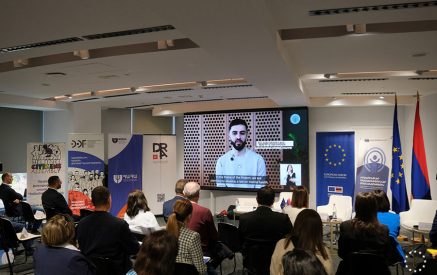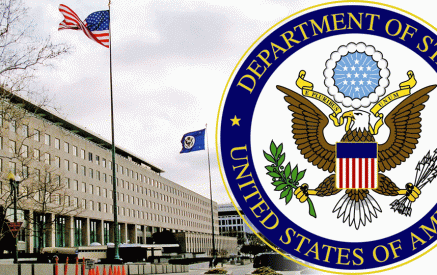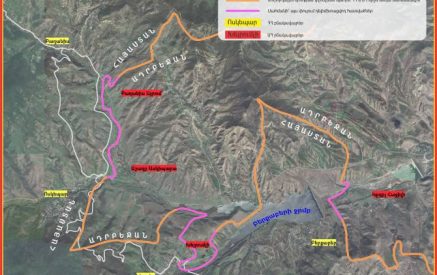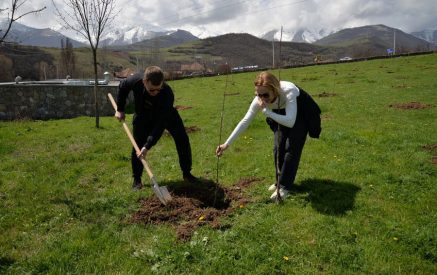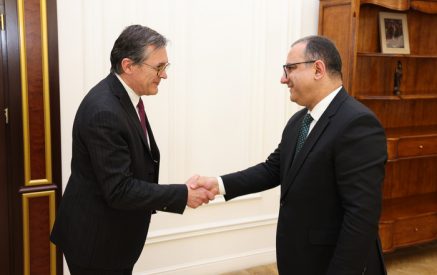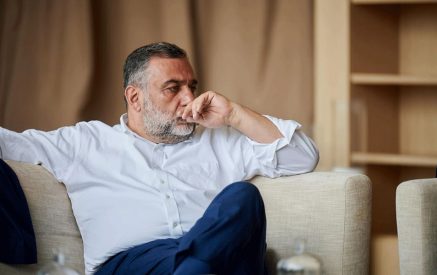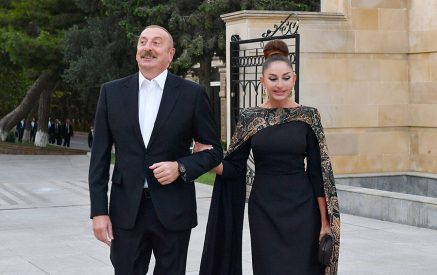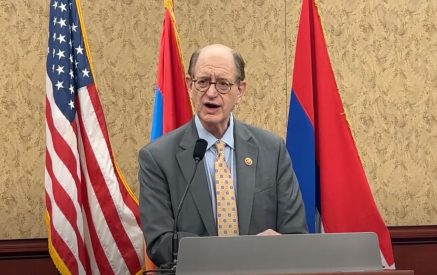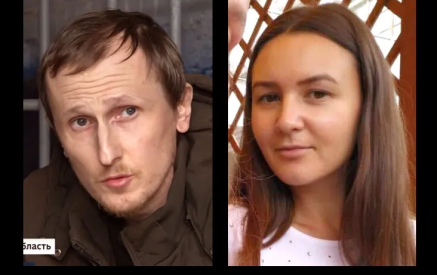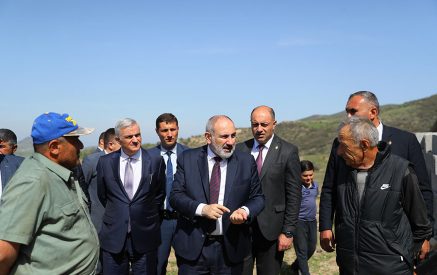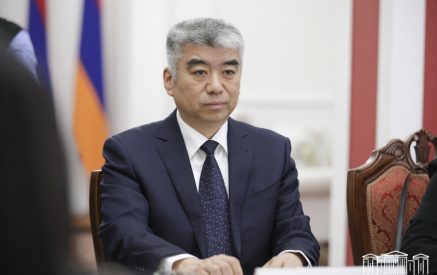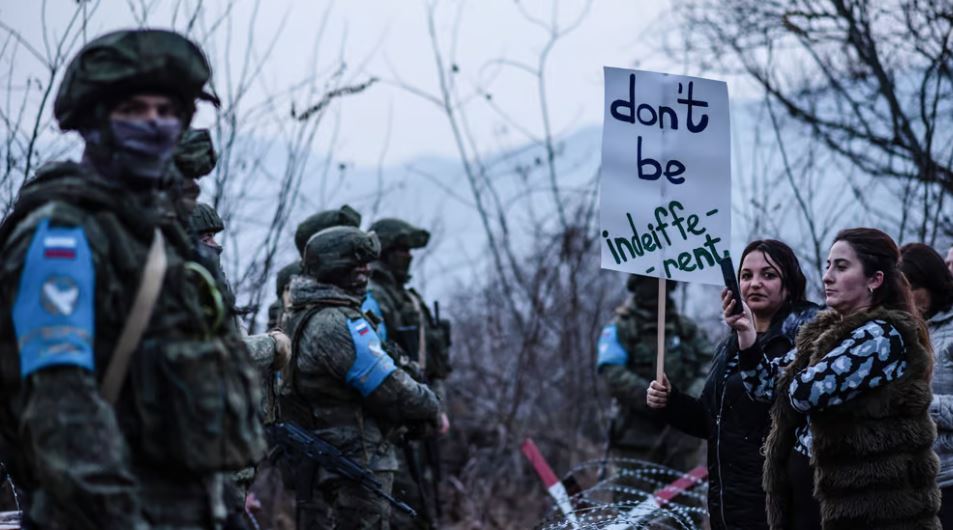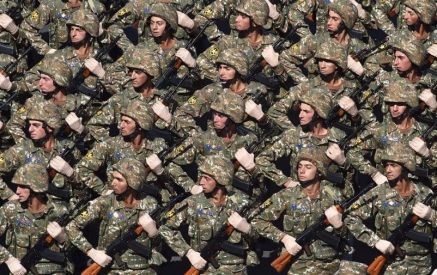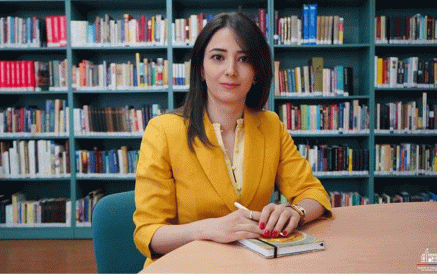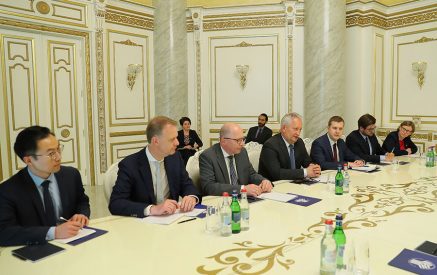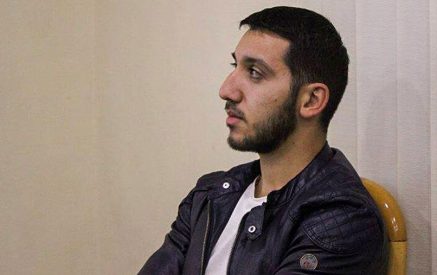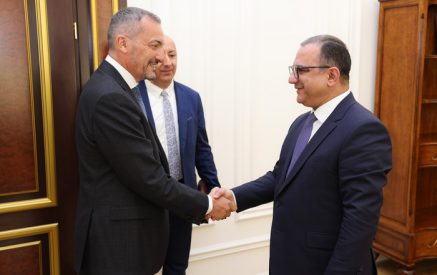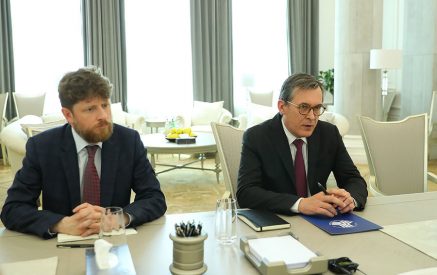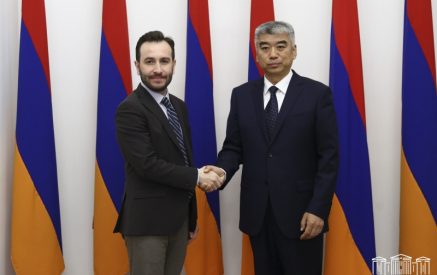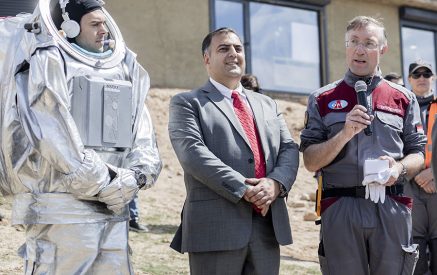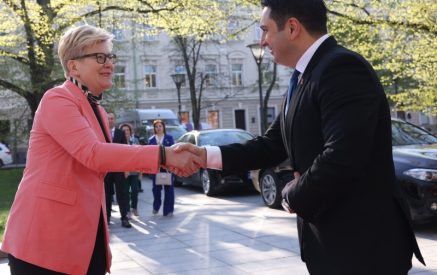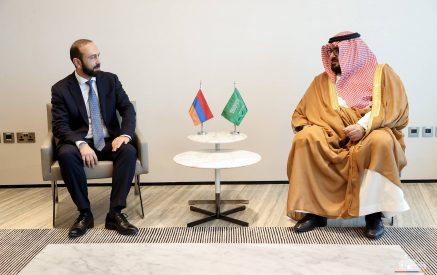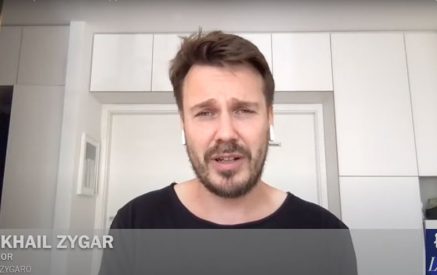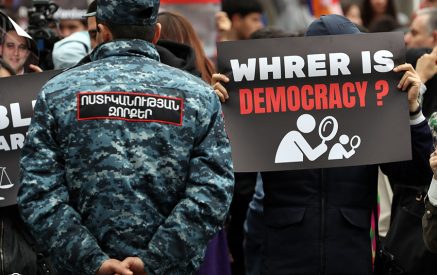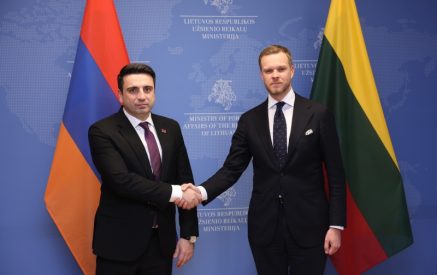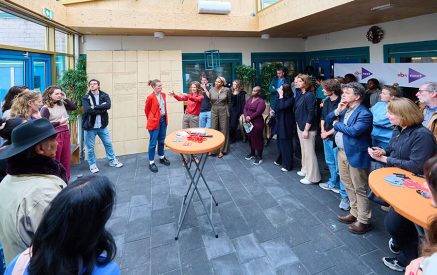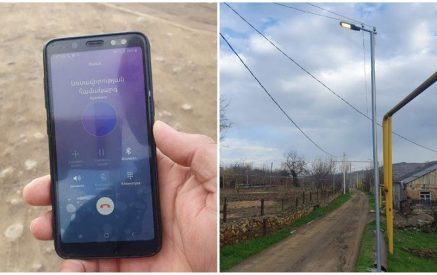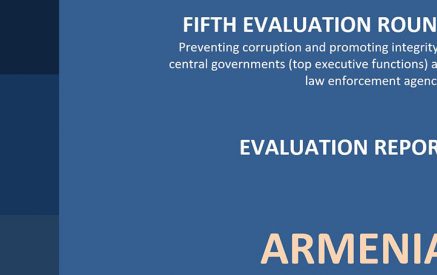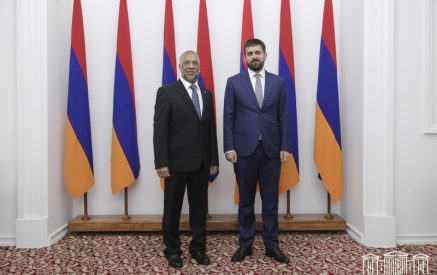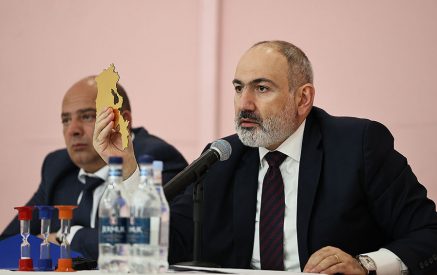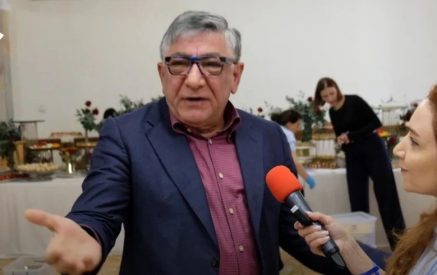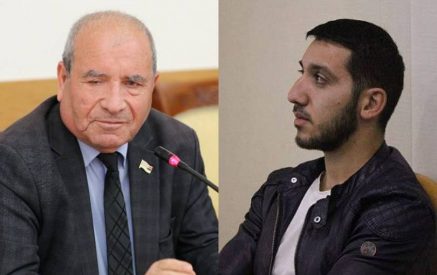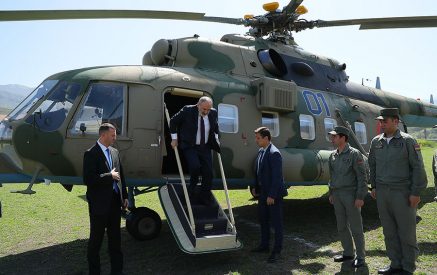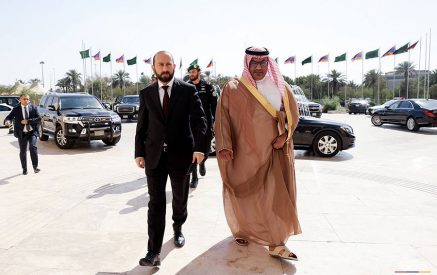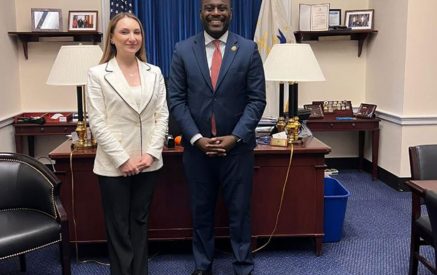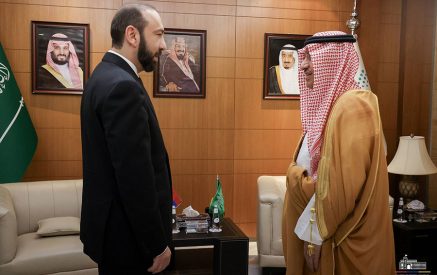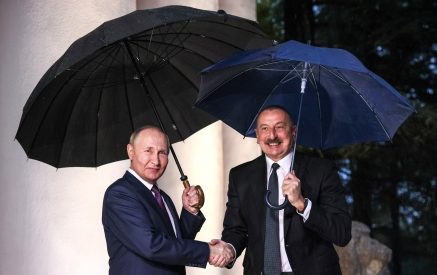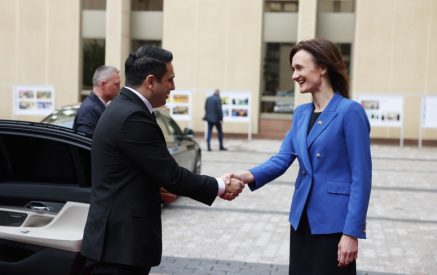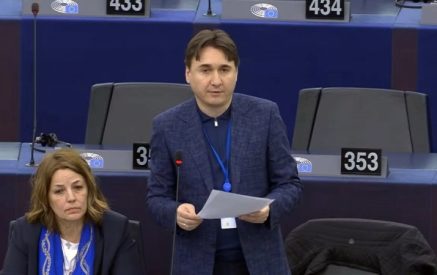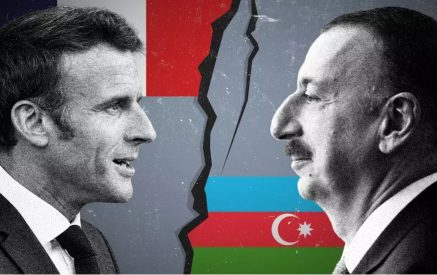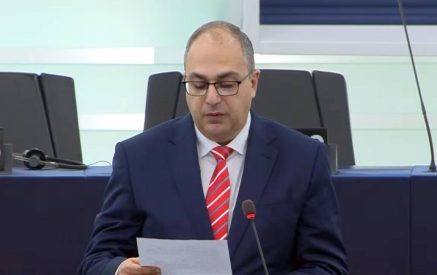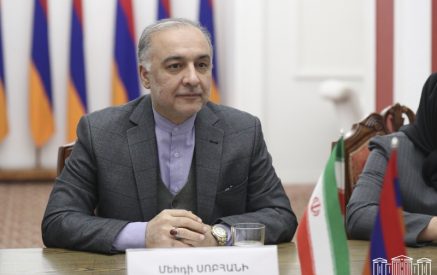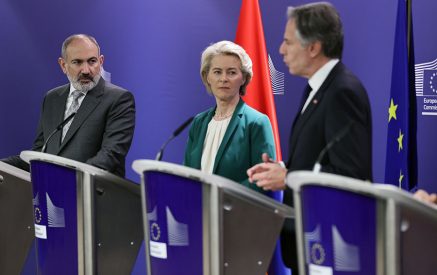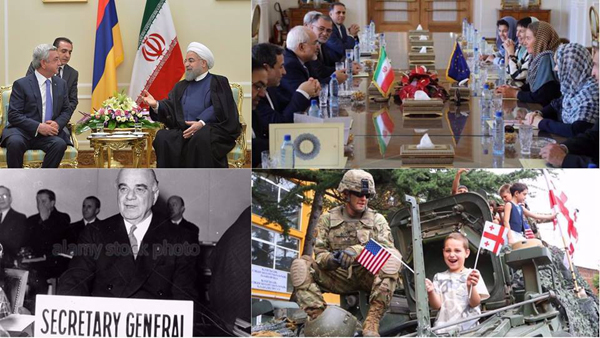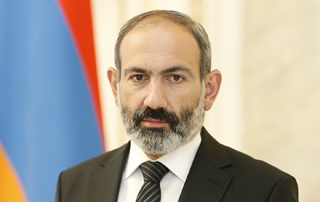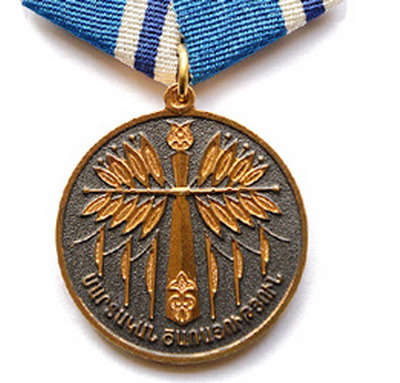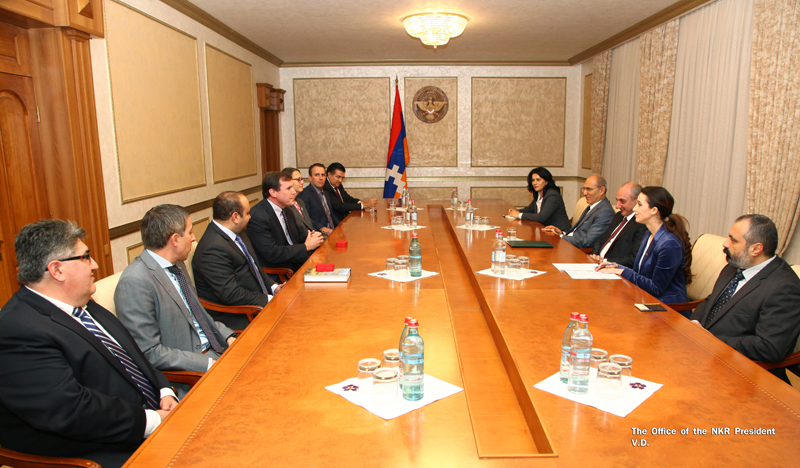The new sanctions package, signed by US President Trump on August 2, outlines a new phase in international relations, predicting changes in the security architecture of the South Caucasus and the Black Sea basin in the upcoming years. It essentially and fundamentally changes the correlation of forces affecting Armenia, and demands a new political course from the official Yerevan, a new strategy that would be equivalent to those changes. The sanctions refer to three countries – Russia, Iran and North Korea. If in case of North Korea, even China does not object, which is indicated by the unanimous vote on Saturday in the UN Security Council, which makes sanctions against this Stalinist reserve tougher, then the “dough” of sanctions against Iran and Russia will still take in much water. Serzh Sargsyan’s working visit to Tehran and participation in Hasan Rohani’s inauguration, which were preceded by his remarkable interviews to the Iranian media, prove that official Yerevan can no longer objectively assess the current status quo in the region as favourable and satisfactory, or to consider that nothing happens. High Representative of the European Union for Foreign Affairs and Security Policy Federica Mogherini also participated in Rohani’s inauguration ceremony, and the US policy of sanctions against Tehran are treated differently in Europe. Iranian authorities invited Mogherini’s attention to the fact that a nuclear agreement may be endangered, and the EU must be “attentive” in this regard as part of the agreement. Trump’s administration is trying to review anything the Obama team has done in domestic or foreign policy, and the historic agreement reached with Iran, apparently, has become one of the targets in the context of this review. At least, Washington’s stubbornness does not withstand any other rational explanation on Iran’s matter. And Europe’s ongoing steps towards Iran show that Brussels is going to refuse neither the agreement reached with Iran nor the deriving prospects of further closer and broader cooperation. And, apparently, Tehran also thinks that the formation of common interest requires time, and they will choose the only right strategy – “strategic patience” (Z. Bzhezinski’s statement). On the other hand, despite Washington’s rhetoric against Iran, the United States is making steps in the South Caucasus and the Black Sea basin, which, not yet completely, but come to fill the gap, which has constantly blocked the West and Iran’s steps toward withdrawing the region from isolation, the change in Russia’s and Turkey’s backyard status, and, in general, the revision of the region’s development vector and logic. It is the shortcoming of the security. The unprecedented military exercises of NATO taking place in Georgia, in which solely 3 countries not being its member participate – Armenia, Georgia and Ukraine, but not Azerbaijan, the visit of the US Vice President Mike Pence to Tbilisi and the announcements made during that visit witness that the United States does not intend to tolerate Russia’s abolishing policy in the region any linger. In parallel, following the transfers of NATO forces and means into Georgia, it is not difficult to notice that Turkey, regardless of its participation in those military exercises, has been left out of the logistic schemes of that transfer: The US European Command transfers the necessary forces and means from Bulgarian ports to Georgian ones by ships from where they are transferred to the Eastern Georgia – Vaziani by train or trucks.
On August 6, the message of the Press Service of the President of the Republic of Armenia on Serzh Sargsyan-Hassan Rouhani meeting taken place in Tehran witnesses that the main topics of the private conversation have been the corridor of Persian gulf-Black Sea passing through Georgia and Armenia and the peaceful settlement of Nagorno Karabakh conflict. By the way, it is highlighted that the Iranian side performs in favor of exclusively the peaceful resolution of the conflict. All this comes to form a divide that in one side stand the parties for changing the current status quo of the region and in the other side stand the parties against it, regardless of the “inner” disagreements existing in every side. Moreover, it is clear that the adversaries are in an evident minority and they can simply slow down or hinder the process but not suggest any alternatives or push forward. It is not difficult to predict who are those adversaries – Russia and its natural and “dear” allies – Turkey and Azerbaijan, which the strategists of Moscow have reserved, respectively the roles of “ice breakers” of Europe and Caucasus and arming them with weapons and technologically, they try to stab them in the body of Europe and Caucasus. And it remains the rest of regional and non-regional subjects to solely arrange and join the efforts to put an end to this abnormal situation. All of them objectively are for those changes – Armenia, Georgia, Iran, Ukraine, the West, Persian gulf countries, Black Sea countries… …NATO First Secretary General (1952-57), British General Hastings Lionel Ismay, explaining the mission of the newly created treaty in Europe turned into a ruins after 2 World Wars, gave the resolution: “to keep the Russians out, the Americans in, and the Germans down”, that is, to keep the Russians out of Europe, Americans – in Europe and to restrain Germany. The post-soviet instability, bloodshed, frozen conflicts, fragmentation (the sole beneficiary of which is Russia) of 25 years, to overcome all this a mere rational strategy has been formed in our region having no alternatives which can provide the overcoming of these challenges: Russia – out, NATO – in, Turkey – down. And the target of this strategy are not only Caucasus but also the basin of the Black Sea. And there is no sense in paying attention to the rhetorics of the official Yerevan which constitutes as if they “make Russia understand”: both “our strategic ally” and “EAEU”, both “Armenia-Iran…-Russia” and other illogical, irrational and unnatural things. What elso should Russia do to prove that it is not here for the Armenia-Iran relations to acquire a strategic level, but for them not to acquire it in neither case? And “Gazprom” “sitting” on our pipes is not here for Armenia to become a transit for the gas coming from Iran, but for it not to become one.
Ruben MEHRABYAN

